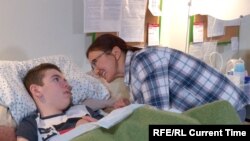This June, police detained Yelena Bogolyubova for seven hours after she picked up a package of medicine for her terminally ill 10-year-old son. Russia had banned the medication, the anti-epileptic drug Frisium, as a narcotic. Amidst an uproar, the government promised changes, but the problem still remains: Russian epileptics cannot always get the medicine they need.
One hospice director, Lida Moniava of House with a Lighthouse, estimates that around 2,100 patients across Russia need the drug for survival.
In September, Russia’s Health Minister Veronika Skvotsova responded to concerns about access to such drugs and claimed that Frisium and other such medications would be reviewed and registered for sale as quickly as possible and “without additional bureaucracy.”
The ministry has purchased and distributed a limited supply of Frisium to those with a prescription for the medication.
However, these drugs still have not been removed from Russia’s list of banned narcotics. Ban violators face a potential fine of 70,000 – 100,000 rubles ($1,095 - $1,565) or three to eight years in prison.
The French company, Sanofi, that produces Frisium has predicted it could take up to two years to re-register the drug as a legal medication, the Russian news agency Interfax reported.
The Health Ministry stated on November 29 that Frisium will be approved for epileptic children by March 2020. But it did not address what those in need of the life-sustaining medication should do until then.




